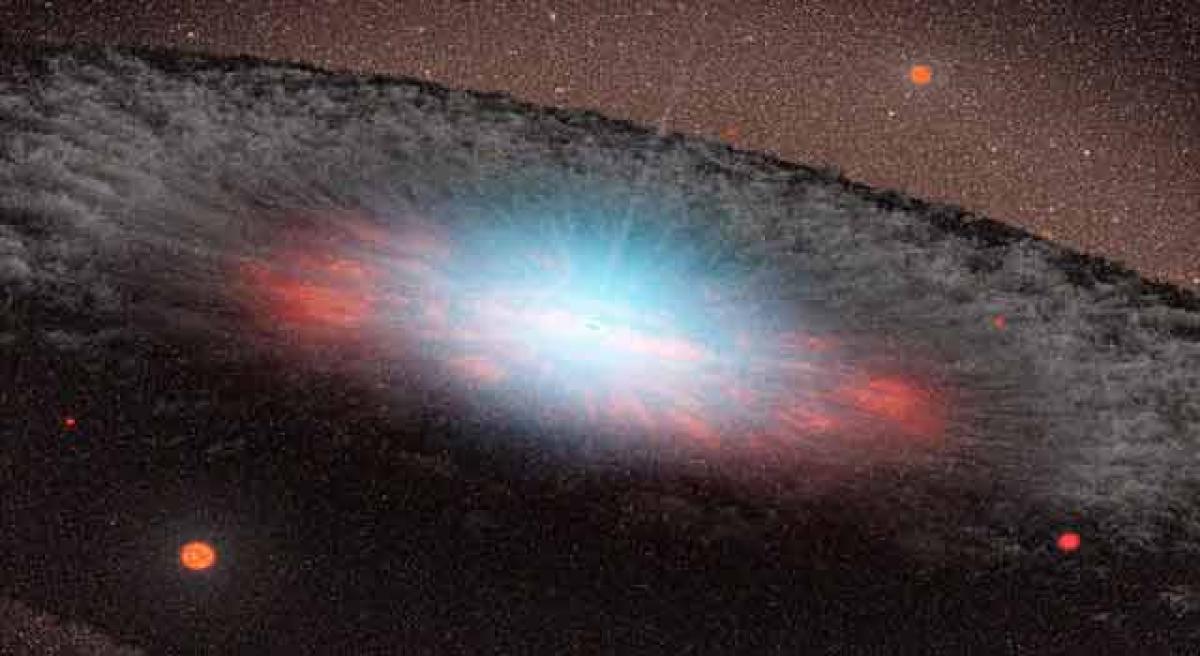Live
- 50 lakh benefited from Deepam-2 so far: Nadendla
- Promote handlooms, Minister tells people
- Tribals seek proper road facility to villages
- Bar Association members stage dharna
- AP image hit: Naidu
- SwarnaAndhra@2047
- A treasure trove of stories to come alive at Hawa Mahal
- Police to use drones to prevent ganja peddling
- All those linked with Adani case close to Congress: Purandeswari
- Students exhorted to adopt latest technology
Just In

Scientists have discovered that hot interstellar winds powered by supermassive black holes in certain galaxies are fuelling a kind of “galactic warming” that is sapping the ability of these galaxies to form stars.
New York: Scientists have discovered that hot interstellar winds powered by supermassive black holes in certain galaxies are fuelling a kind of “galactic warming” that is sapping the ability of these galaxies to form stars.
Over the last few billion years, a mysterious kind of galactic warming has caused many galaxies to change from a lively place where new stars formed every now and then to a quiet place devoid of fresh young stars.
But the mechanism that produces this dramatic transformation and keeps galaxies quiet has been one of the biggest unsolved mysteries in galaxy evolution.
"These galaxies have the necessary ingredients for forming new stars but they are not doing it -- why," wondered Renbin Yan, assistant professor of physics and astronomy at University of Kentucky in the US.
The researchers named these galaxies "red geysers". They host low-energy supermassive black holes which drive intense interstellar winds.
These winds suppress star formation by heating up the ambient gas found in galaxies and preventing it from cooling and condensing into stars, the researchers explained.
Akira's gravity pulls Tetsuo's gas into its central supermassive black hole, fuelling winds that have the power to heat Akira's gas.
But because of the action of the black hole winds, Tetsuo's donated gas is rendered inert, preventing a new cycle of star formation in Akira, the researchers explained.
The findings suggest that as with global warming on Earth, galactic warming has long-term consequences for red geyser galaxies -- their gas can no longer form new stars.
Source: IANS

© 2024 Hyderabad Media House Limited/The Hans India. All rights reserved. Powered by hocalwire.com







